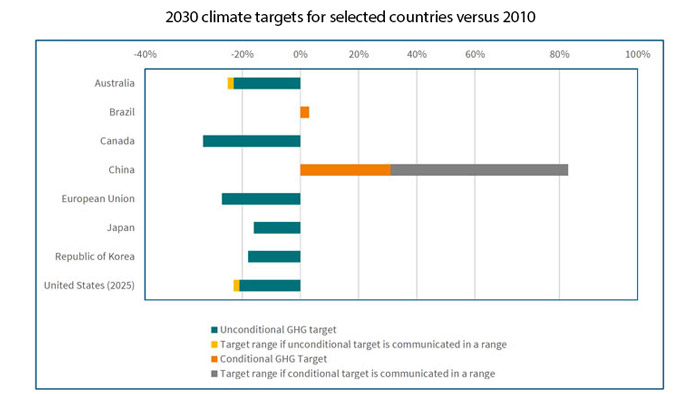
Global Alliance Powerfuels says e-fuels can close the gap in reducing greenhouse gas emissions
Global Alliance Powerfuels has released a discussion paper providing an overview of technologies, markets and framework conditions for e-fuels. It shows that in addition to energy efficiency and the direct use of renewable electricity, climate-neutral synthetic liquid fuels can be an enabler in achieving the climate goals agreed upon in the Paris Climate Accord.
E-fuels are proving to be ready for the market and can quickly become more efficient and cost-effective through economies of scale, according to Global Alliance Powerfuels. In addition, they offer the potential for the development of new markets and value chains worldwide, the group said.
The Global Alliance Powerfuels is a cross-industry association of companies and associations working on the energy supply of the future, including UNITI. The UNITI Federal Association of medium-sized oil companies e. V. represents around 40% of the market for diesel fuel and petrol and about 42% of LPG in Germany. The association also includes the majority of independent medium-sized lubricant manufacturers and lubricant distributors in Germany. Their market share is around 50%. The approximately 1,100 member companies of UNITI achieve a total annual turnover of around EUR35 billion (USD39.38 billion) and employ around 80,000 workers in Germany.
“E-fuels can close the gap in reducing greenhouse gas emissions, as energy efficiency and renewable electricity alone will not be enough to meet the climate targets. The discussion paper clearly shows the superiority of climate-neutral liquid energy sources compared to other alternative energy sources discussed and invites politicians, industry, science and society to a dialogue on the national and international energy future,” said UNITI Chief Executive Elmar Kühn.
According to the discussion paper, there are four main reasons for adopting e-fuels:
- They can be used anywhere where there are no other alternatives to fossil fuels.
- They enable worldwide transport and trade of energy from wind and sun.
- They can be stored long-term and used flexibly in existing energy infrastructures.
- They can replace conventional liquid energy sources in the short term and thus have an immediate impact on the climate.
To ensure that capacities are available in a timely manner, the discussion paper recommends building up the market for e-fuels now and using the high technological and economic potential of pioneering countries such as Germany. E-fuels offer new value-added potential to countries and companies: Power-to-X technology providers are opening up a new future market that will create additional jobs. Customers can reach their climate goals with e-fuels and implement a more flexible energy transition. Producing countries with good solar and wind conditions are given the opportunity to re-enter the global energy market.
Coordinated by the German Energy Agency (dena), the Global Alliance Powerfuels is pursuing the goal of building a global market for electricity-based fuels from renewable energies, providing information on the potentials, providing recommendations for developing suitable framework conditions and launching pilot projects.













